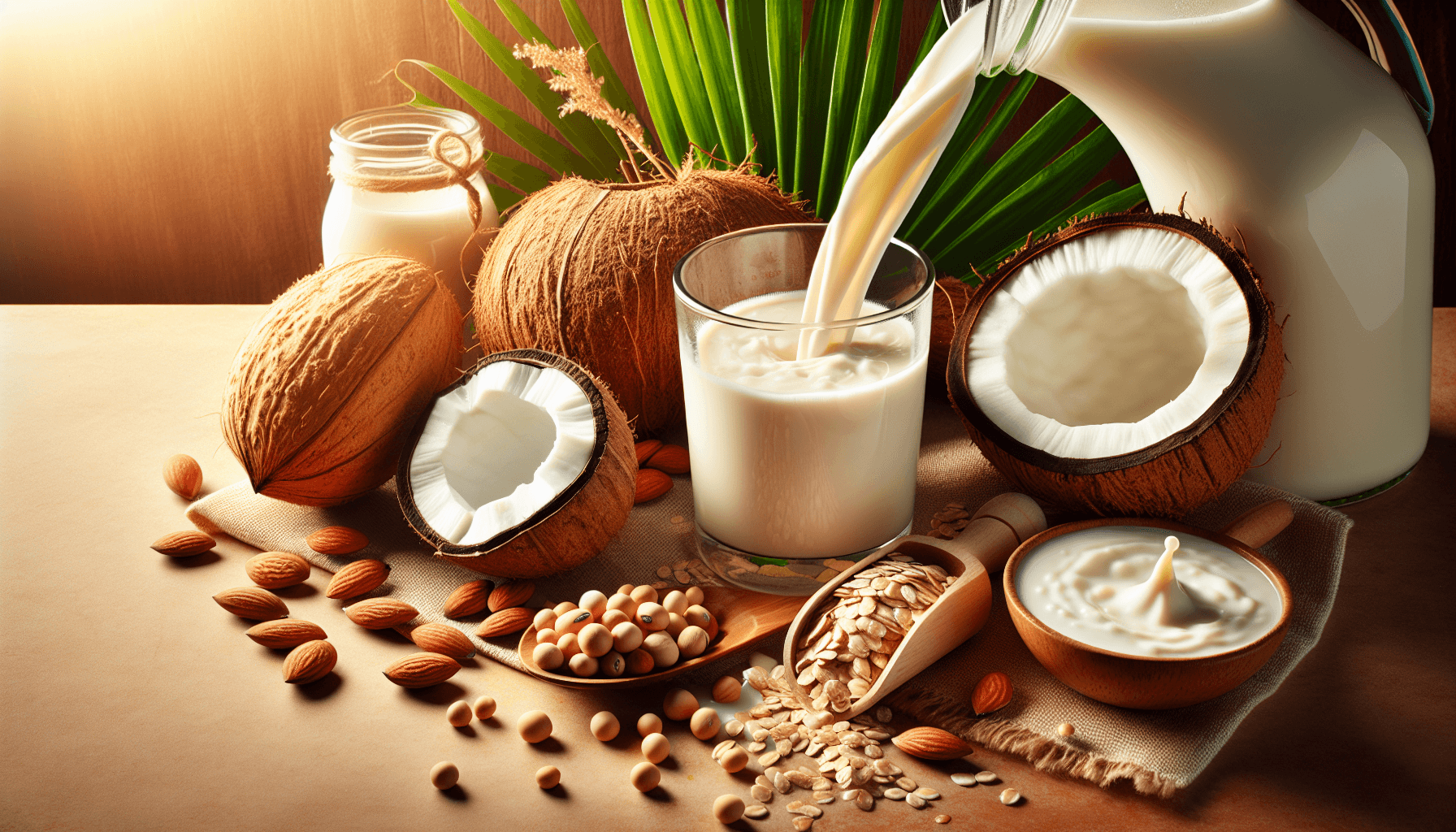In today’s health-conscious society, more and more people are opting for plant-based alternatives in their diets. Whether it’s for health reasons, ethical concerns, or environmental considerations, plant-based milks have become increasingly popular. These non-dairy alternatives, such as almond milk, soy milk, and oat milk, offer a range of benefits that make them a compelling option for both vegans and non-vegans alike.
1. Nutritional Benefits
Plant-based milks can be a fantastic source of essential nutrients. While cow’s milk is known for its calcium content, many plant-based milks are fortified with calcium, vitamin D, and other nutrients to provide a similar nutritional profile. This is particularly important for those following a vegan or dairy-free diet, as these nutrients are essential for bone health and overall well-being. Additionally, plant-based milks are often lower in saturated fat and cholesterol compared to cow’s milk, making them a healthier choice for cardiovascular health.
2. Allergy-Friendly
One of the main advantages of plant-based milks is that they are free from common allergens found in cow’s milk. Many individuals suffer from lactose intolerance, which means they have difficulty digesting lactose, the sugar naturally present in cow’s milk. Plant-based milks, on the other hand, are naturally lactose-free, making them a suitable option for those with lactose intolerance. Additionally, plant-based milks are also free from dairy proteins, such as casein and whey, which can cause allergic reactions in some people.
3. Variety of Options
Plant-based milks offer a wide range of flavors and textures to suit different preferences and dietary needs. From creamy almond milk to rich and frothy oat milk, there is a plant-based milk for everyone. These options allow individuals to experiment with different flavors and find the one that best complements their taste buds. Moreover, some plant-based milks are unsweetened or flavored with natural sweeteners, giving individuals the ability to control their sugar intake.
4. Environmental Sustainability
Choosing plant-based milks over cow’s milk can have a positive impact on the environment. The livestock industry is a significant contributor to greenhouse gas emissions, deforestation, and water pollution. By opting for plant-based milks, individuals can reduce their carbon footprint and help preserve natural resources. Plant-based alternatives consume less water and land, making them a more sustainable choice.
5. Ethical Considerations
For those with ethical concerns about animal welfare and treatment, plant-based milks provide a cruelty-free alternative. The dairy industry often raises ethical questions regarding the treatment of cows, including factory farming practices, separation of calves from their mothers, and the use of growth hormones and antibiotics. By choosing plant-based milks, individuals can enjoy their favorite milk-based products without contributing to these concerns.
Overall, plant-based milks offer a range of benefits that make them a suitable and appealing choice for individuals looking to incorporate healthier and more sustainable options into their diets. Whether it’s for nutritional reasons, allergy-friendly alternatives, or to support ethical and environmental considerations, these non-dairy milks provide a viable and delicious alternative to traditional cow’s milk.
If you are interested in exploring the benefits of plant-based milks further, consider consulting a nutrition coach. They can provide personalized guidance and support in integrating plant-based milks and other healthy alternatives into your diet. Click here to learn more about the benefits of nutrition coaching and how it can help you achieve your health goals.

